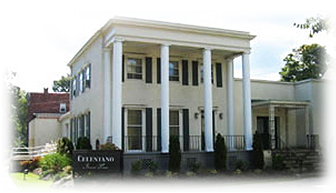It’s a career-long misunderstood and under-represented in popular culture, but there’s plenty more to the $1 billion Australian funeral industry than many in society know. for several people, a funeral could be a time of healing and celebrating the life of a lover, and also the expectations that come together with that make it an air mass job behind the scenes. Funeral Directors Essex is much needed.

Being a skilled worker requires plenty of skill and a fanatical work-ethic to beat the challenges facing the task. There’s stress not only on respecting the deceased but also having well-engrained customer service skills, event management, and business management skills.
Above all, it’s about creating a positive impact in people’s lives, consistent with Director of Botanical Funerals and Deakin MBA graduate, Ian Allison. Here, he unshrouds the mystery of what it’s like to be an undertaker.
Find out more about studying a Master of Business Administration with Deakin.
What led you to become a funeral director?
‘In hindsight, it had been probably inevitable that I might become an undertaker. I grew up with both my grandparents having been funeral directors further as my father and brother. As a sixth-generation undertaker, I continue a protracted-standing family tradition which was started in 1801.
‘Also, funerals, believe it or not, we’re often the most topic of conversation in our household and that I would also often visit our different funeral homes with my father and would like to play within the casket selection room. At a young age, I just saw caskets as comfortable looking beds without an understanding of what they were designed for.
‘Above all though, I see my job as a calling or vocation.’
What does a median day seem like for you?
‘Each day is different and this is often one in every one of the items I really like about my job. It may well be meeting with a family to organize a funeral (every family is different), coordinating a funeral, or liaising with cemeteries, florists, and other suppliers in organizing a funeral.
‘Also, we are involved in regular community activities like charity events, meeting with community groups, presentations, etc. There’s never a dull moment and everybody you look after is different, so our approach is flexible and individualized.’
What does one love most about your job?
‘I love many various aspects of my work. From taking care of families from various range of cultural backgrounds to being challenged by complex cases for sending deceased people back to their home country overseas.
‘As funerals are considered a critical a part of helping people heal in their time of grief, I like the actual fact that we have the chance to form a long-lasting positive impact in someone’s life from delivering exceptional personalized service.’
What are a number of the challenges of your job?
‘In funeral service delivery, you simply have one opportunity to induce everything right for the family, and because it can’t be re-done this puts particular challenges on your processes and procedures.
‘Once you’re committed to organizing a funeral it never leaves your mind until it’s over. You’re always considering what must be done. So if you don’t need a job that you just bring in with you after you finish work, then funeral directing isn’t the duty for you.’

